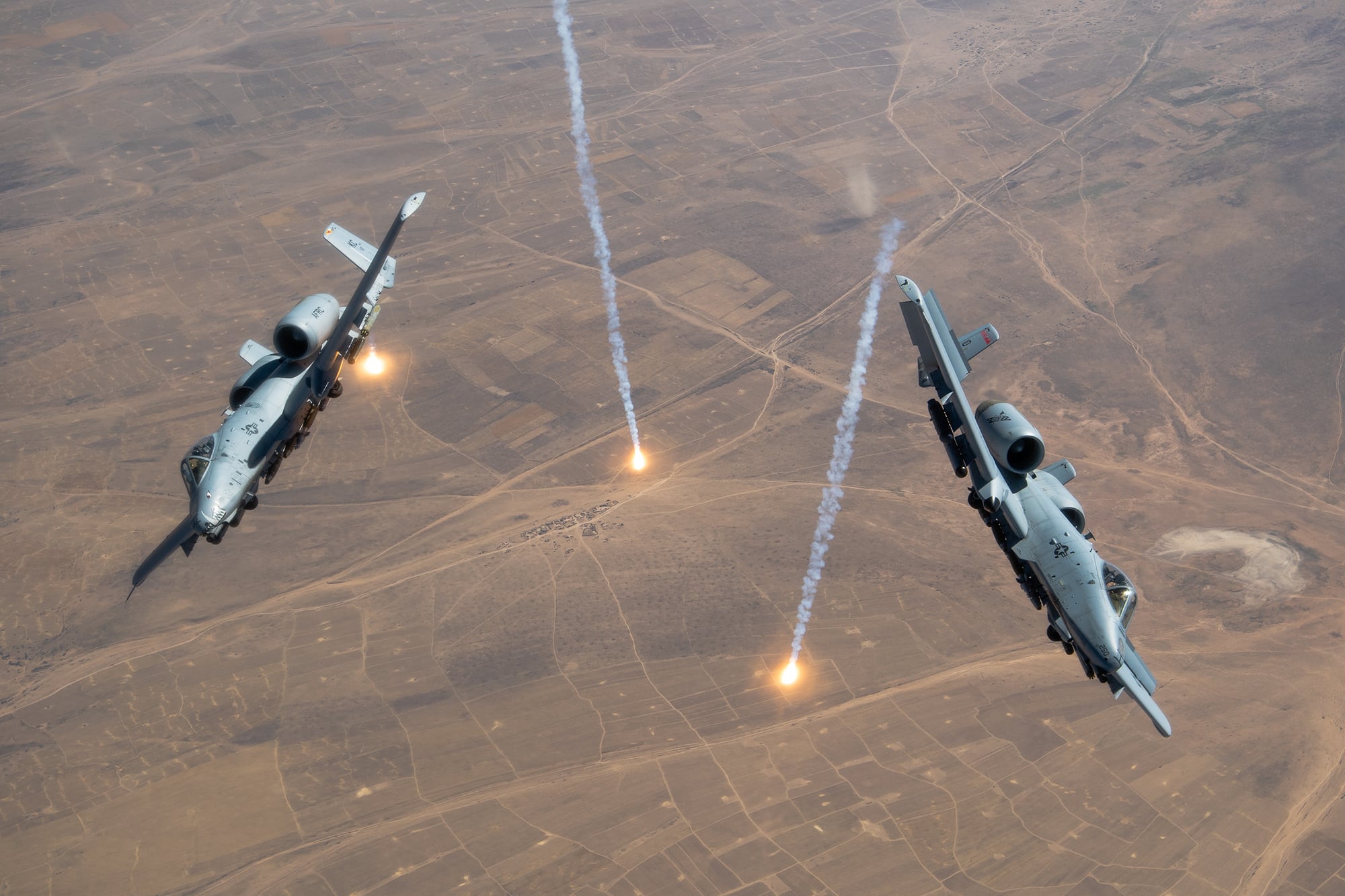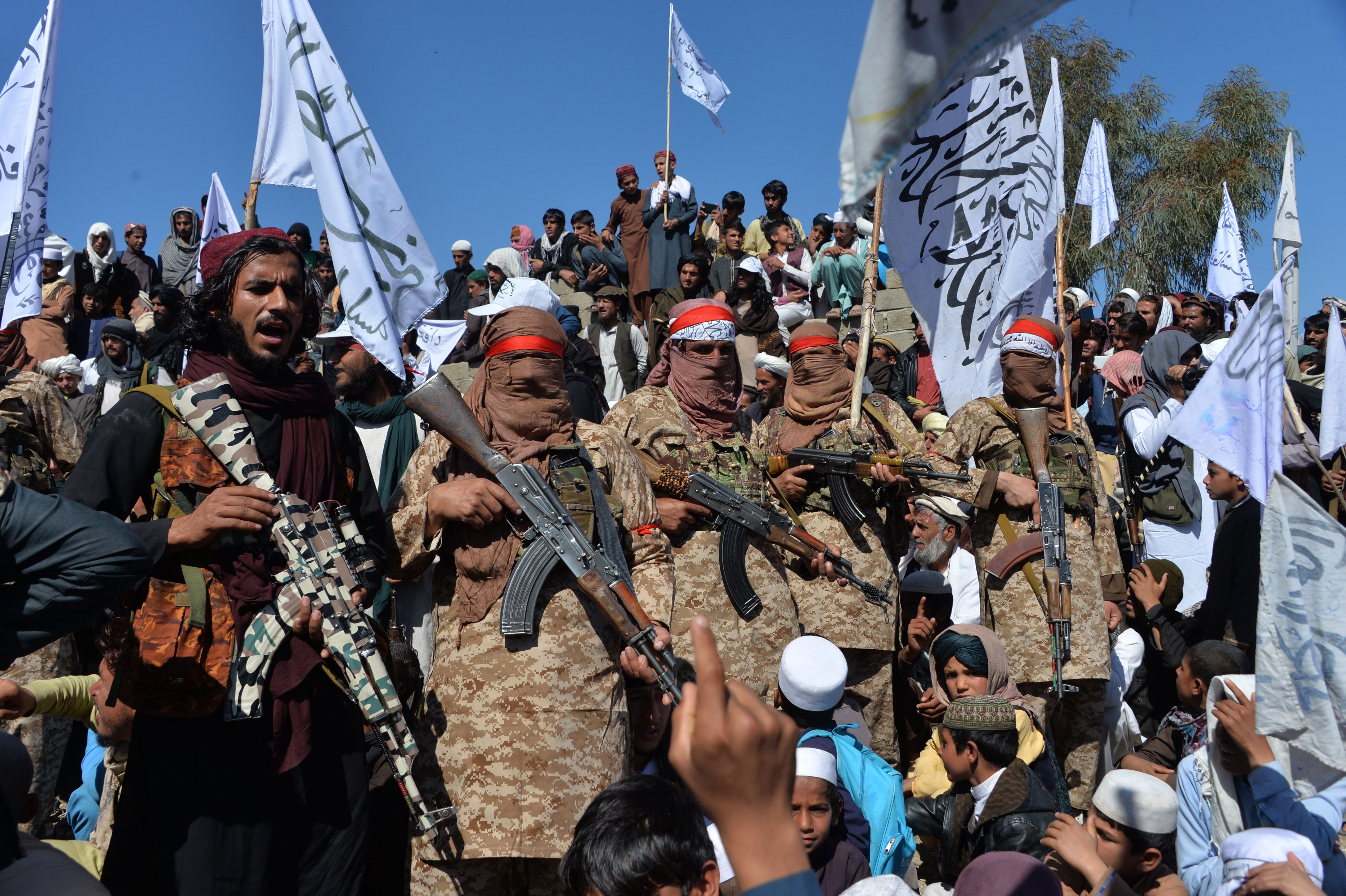ISLAMABAD — The Taliban said on Friday they have agreed to suspend attacks in southern Afghanistan that have displaced thousands this week — but only after the Americans promised to halt all strikes and night raids in keeping with the peace agreement the U.S. signed with the insurgents in February.
The U.S. has been conducting airstrikes in support of Afghan forces trying to repel week-long Taliban assaults in southern Helmand province that threatened to derail efforts to end Afghanistan’s 19-year war.
The Taliban pledge came after a meeting with U.S. peace envoy Zalmay Khalilzad and Gen. Austin Miller, commander of U.S. troops in Afghanistan, a Taliban figure familiar with the discussions said. He spoke on condition of anonymity because he was not authorized to speak to the media.
The Taliban agreed to suspend their operations after the Americans said they would end drone strikes on insurgent positions, as well as night raids and air assaults, the Taliban figure said.
RELATED

Helmand has been the scene of a blistering Taliban assault since last week, with rocket attacks from the Taliban and retaliatory airstrikes from U.S. and Afghan aircraft forcing more than 5,600 families to flee their homes, seeking refuge in the provincial capital of Lashkar Gah and Nad Ali and Marja districts.
Over the past few years, a resurgent Taliban have gained control of roughly 80% of the province, mainly the rural areas, while the district centers are still under government control.
The flareup came even as Afghan government representatives and the Taliban are holding peace talks in the Middle Eastern state of Qatar, where the Taliban have for years maintained a political office. The negotiations, envisaged under a U.S. deal signed with the insurgents on Feb. 29, are seen as the country’s best chance at peace.
In a series of tweets Thursday, Khalilzad said he and Gen. Austin Miller, the commander of U.S. forces in Afghanistan, held talks with the Taliban and then, after several rounds, he said both sides agreed to a “reset” which will result in a “reduced numbers of operations.”
“Following several meetings Gen. Miller and I had with the Taliban we agreed to re-set actions by strictly adhering to implementation of all elements of the U.S.-Taliban agreement and all commitments made,” he said.
The negotiations in Qatar between the Taliban and Afghan government negotiators began in September but after a ceremonious start became bogged down, mainly in the minutiae of Islamic jurisprudence.
While successful negotiations are seen as critical to an end to decades of war in Afghanistan, the withdrawal of American troops relies on the Taliban honoring their commitments from the February accord to not support terror groups and fight all militants, most specifically the region’s Islamic State affiliate.
Khalilzad tweeted that recent attacks have been “threatening the peace process and alarming the Afghan people and their regional and international supporters.”
The Taliban official told The Associated Press that in the meetings, the Americans were told “their military is carrying drone strikes on our positions, conducting night raids and using fighter jets to bomb our mujahedeen,” or holy warriors.
“We told them, ‘You had promised not to carry out attacks. We react to your attacks’,” he said.
The Taliban official also said that after both sides agreed to strictly implement the U.S.-Taliban deal signed in February. “We have directed our mujahedeen in Helmand to stop their advance. We hope the U.S. will stop further bombing,” he said.
Meanwhile, Helmand Gov. Mohammad Yasin Khan said more than 300 Taliban fighters had been killed in the last six days in the province, and that Pakistani and Iranian nationals were among those killed.
The Taliban have not confirmed the claim, which was impossible to independently verify as much of Helmand is inaccessible to the media.
Associated Press writers Tameem Akhgar in Kabul, Afghanistan, and Abdul Khaliq in Lashkar Gah, Afghanistan, contributed to this report.





